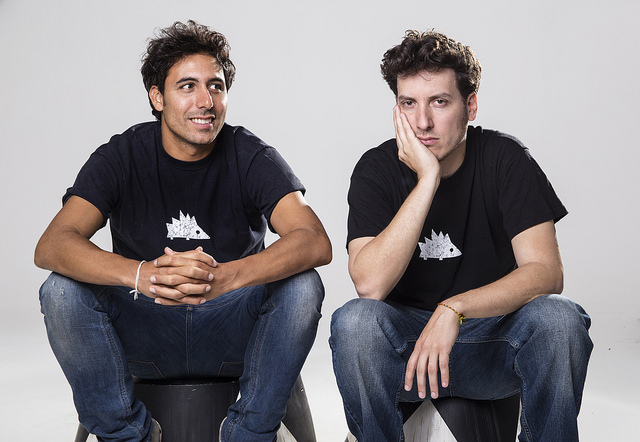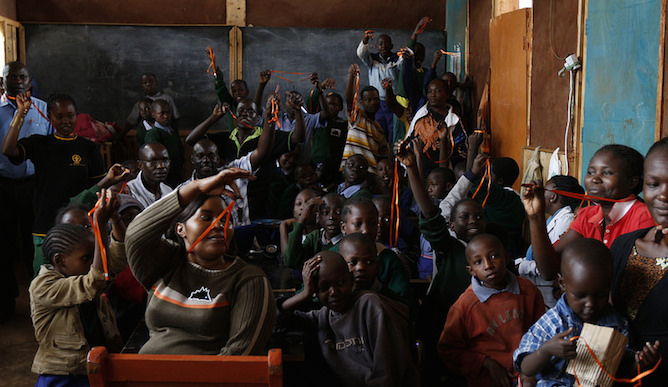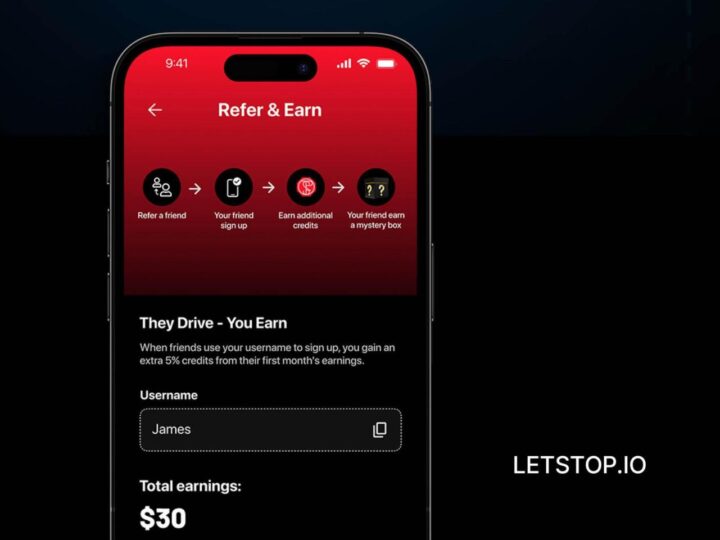Not since Israeli serial entrepreneur Dov Moran changed the world with his DiskOnKey flash drive has anyone come up with a similarly disruptive idea: using Moran’s invention as the basis for Keepod, a fully portable operating system.
Nissan Bahar of Israel and Francesco (Franky) Imbesi of Italy discovered that five billion people, or 70% of the world’s population, have no access to personal computing. Knowing it is neither possible nor environmentally responsible to manufacture enough computers to fill needs, they came up with the idea of loading a $7 DiskOnKey with a unique version of Google’s Android 4.4 operating system.
Keepod enables groups of people to share any old laptop, netbook or desktop with its hard drive removed. Each person simply plugs the device into the computer, and gets a PC with individual password-protected settings, programs and files.
“We’re breaking a few paradigms in the world of computing and digital devices,” Bahar tells ISRAEL21c. “We’re making personal computing like public transport. Not everyone can have a shiny car, so you hop on a bus.”
Thanks to a resoundingly successful crowdfunding campaign and a partnership with the organization LiveInSlums, Bahar and Imbesi introduced the Keepod to a school in the Mathare slum of Nairobi, Kenya. They brought in computers that were previously destined for landfills.
“In the US alone, 85,000 computers are thrown out every single day. We can give a big percentage of them a new life with Keepod. In Nairobi or anywhere else, one computer can serve 25 to 30 people every week,” says Bahar.
“The coolest thing is that we moved something at the people-to-people level. Keepod is really about grassroots activity that anyone can do with an old laptop and a Keepod [stick] or two in a community center or school where it’s needed,” he adds.
“It’s an ecosystem of ideas and things together.”
130 Keepod hubs to come
To devote their full attention to Keepod (Hebrew for “porcupine” and descriptive of the project in English) Bahar and Inbesi left successful careers providing information security and enterprise solutions to banks and telecom companies across Europe.
“About a year ago, we started to think how to leverage this technology to do something better than selling it to executives,” says the 38-year-old Israeli.
“We had a feeling we could work it out to give [computer] access to everyone. We’ve put principles ahead of profit.”
At the same time, Keepod is a sustainable social business, not a charity. The sale of each Keepod device at cost generates about $2 in profits. “Everything we make we give back to the community,” Bahar explains.

In Mathare, this cash is funneled back through LiveInSlums to support its projects in public health and education. But Bahar points out that the Keepod itself is a vehicle for such projects.
“Providing this school with refurbished computers and Keepod devices for each child will gain them access to tools that will help kids learn reading, writing, math, and technology, in turn providing them with a chance for a better future,” he says.
In addition, local community centers equipped with Keepods and recycled computers are planned. They will be run by specially trained local residents.
“These centers are our version of a microcredit project. Giving computing resources to the community will allow local Mathare entrepreneurs to create their own initiatives, mentored by the center staff, and to gain access to crowdfunding platforms such as Indiegogo,” says Bahar.
Open source
Bahar and Inbesi decided to fund each project separately so as to better keep track of how money is being spent. Their Indiegogo crowdfunding campaign for Keepod Unite Nairobi raised nearly $41,000, or 107 percent of its $38,000 goal.
Keepod Unite for Mathare from keepod on Vimeo.
“Since then, things have been completely crazy,” Bahar reports.
The social business, based in Tel Aviv, has received requests to set up about 130 Keepod hubs in more than 50 countries on six continents.
The duo’s software will soon be available for download.
“I work with a team here [in Israel] and we have collaborators in the US, China and other places. We are opening it more and more as an open-source project so people anywhere can contribute code,” says Bahar.
For more information, see http://keepod.org/.

















